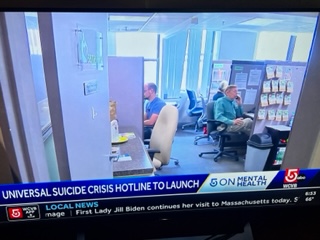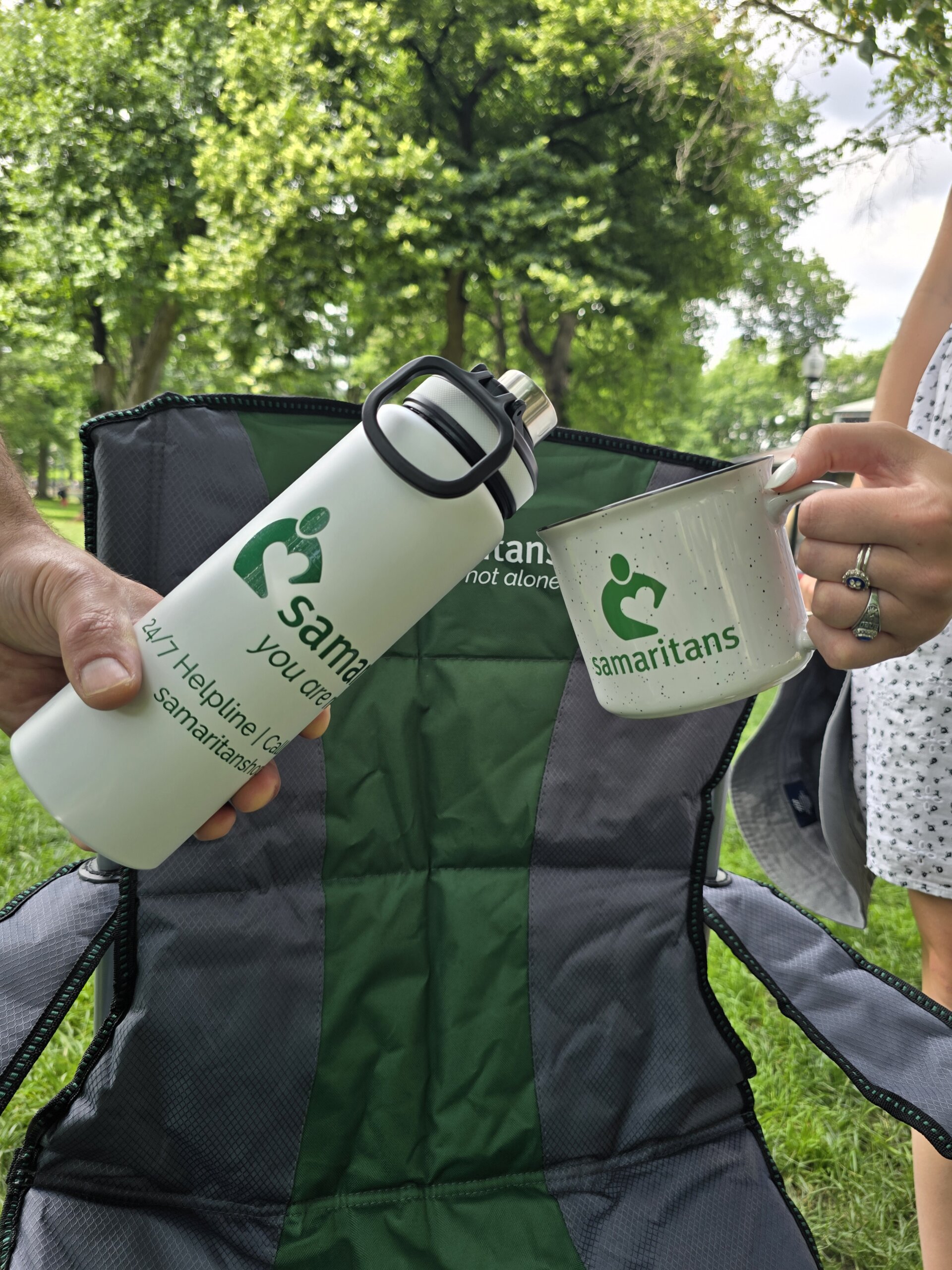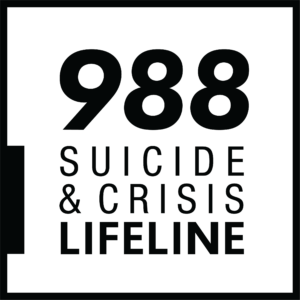You would never guess that Thomas Burke is 81 years old. He takes time each week to visit with friends that he has acquired over a lifetime – even all the way back to his elementary school days. Tom plays on a trivia team with his daughter. He hosts Poker games with his former colleagues from work. He organizes outings to go see musicals with his friends, and he cheers on all seven of his grandchildren and four children in their activities and endeavors.
And in addition to all of that, Tom finds time to be a Helpline volunteer for Samaritans each week. As a matter of fact, Tom is one of the longest-serving Helpline volunteers at Samaritans ever. He has been answering calls with Samaritans for 46 years (and even served on the Samaritans board for a period of time)!

Tom’s journey with Samaritans began in September of 1972, when he reached out after witnessing a tragedy at his place of work. He had been working as a manager at Prudential Insurance company, and one day, both Tom and his team witnessed someone lose their life to suicide when they jumped out of the window of a neighboring high-rise building.
“It was quite traumatic for some of the people on the shift that I supervised,” Tom says. “As it turns out, Prudential was an early sponsor of Samaritans when they first came to Boston, and my company suggested that I talk with the organization for support.”
Tom took the advice and was put in contact with Monica Dickens, the founder of Samaritans in the United States. He shares that she befriended him and inspired him to want to get more deeply involved in Samaritans.
“Monica was a force of nature. She mixed well with kings and with those who swept floors,” Tom remembers. “I learned a lot about the organization through her, and after a while, she asked me if I would consider becoming a volunteer because they wanted to reach other businessmen.”
Tom shares that after considering the idea with his wife and four children, he decided to give it a try because he loves people, and he wants to create an impact.
“I was brought up in a family culture where you were always taught to help others who were in need,” Tom shares. “And I prefer to be close to the action. I felt that being able to help with something as significant as life and death was certainly a contribution bigger than anything else I could endeavor.”
But Tom admits that at the beginning, volunteering on the Helpline was harder than he had realized.
“The emotions that surround it are very hard to handle,” Tom reveals. “It was clear to me early on that there may be situations that don’t go well, and I had to work through whether I could deal with that.”
Tom remembers a particularly difficult Easter night when he was volunteering and answered a call from a young mother. She was experiencing domestic violence and ideating about suicide, but was trying to hang on for the sake of her young children.
“There are no words. It’s as simple as that,” he says. “She just talked, and I listened. Was there a resolution to that? I will never know, and I have had to learn to be okay with that and to talk with other volunteers to get things off my chest.”
While moments like these can be difficult, Tom says he believes wholeheartedly in the Samaritans’ approach of befriending someone when they are struggling with mental illness and suicidal ideation.
“The person is the focus, not the problem – which is the opposite of traditional therapy that often provides advice.” Tom explains. “Giving the person an audience and the opportunity to tell their story can be very effective. You can’t let your ego get in the way or try to become part of the solution yourself.”
When asked what advice he would give to other people who also want to help prevent suicide, Tom says that he would ask people to start by having the courage to not avoid the subject or to deny the existence of the subject. He says that building greater awareness about suicide and mental illness is key.
“Suicide is out there like the common cold. It’s all around us. It’s part of the human condition. But it is also preventable through awareness and being willing to get involved instead of running away from it. Too often when someone is struggling, the easier thing to do is to deflect it and to talk about how well things are going and about how the sun is shining today. 90% is just showing up for the conversation.”
Tom goes on to explain that the other 10% of the work to prevent suicide involves being willing to let the person who is struggling have the space and confidentiality to tell their story in that conversation.
“Support them in that moment,” he says. “Stay with them emotionally as long as you can. Don’t be afraid to be silent. And when you do speak, ask questions that turn the focus on the person, not the problem. Ask them what has helped them in the past when they were feeling down.”
Tom says that his ability to listen to others and to create a safe space for them to share is something that he has learned because of Samaritans. He also says that he has no plans to stop listening anytime soon. When asked what he will be doing three years from now, a smile quickly spreads across his face.
“Three years from now, I will still be here,” Tom says with a chuckle. “I will be almost 85, so I hope that I will still be able to run the Samaritans 5K. Above all, I will continue to get up each day for breakfast feeling happy and will be there to listen when someone needs me.”









